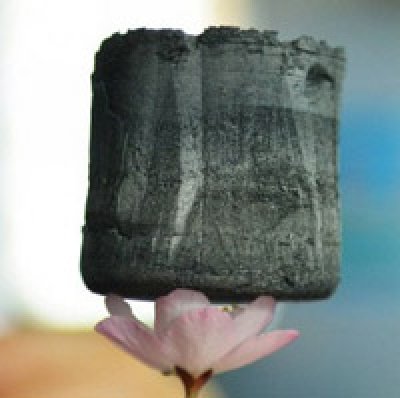Scientists create world's lightest material - carbon aerogel

Chinese scientists have developed the world's lightest substance - carbon aerogel - with a density only one sixth of that of the air. Scientists at Zhejiang University produced the solid material which has a density of only 0.16 mg/cubic centimetre, breaking the previous record of the world's lightest material held by graphite aerogel.
Aerogel is a material produced with semi-solid gel dried and solvent removed. It appears in a solid state with many internal pores filled with air, and thus it's of minimal density.
The research team led by Professor Gao Chao freeze-dried solutions of carbon nanotubes and graphene to remove moisture and retain integrity. Despite its fragile appearance, carbon aerogel is excellent in elasticity. It can bounce back when compressed.
In addition, it's one of the materials with biggest oil absorption capacity. Current oil absorbing products can usually absorb organic solvent of about 10 times of their own weight. The carbon aerogel newly developed can absorb up to 900 times their own weight.
In addition to pollution control, carbon aerogel is expected to become an ideal material for energy storage insulation, catalytic carrier and sound-absorption.